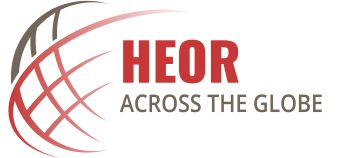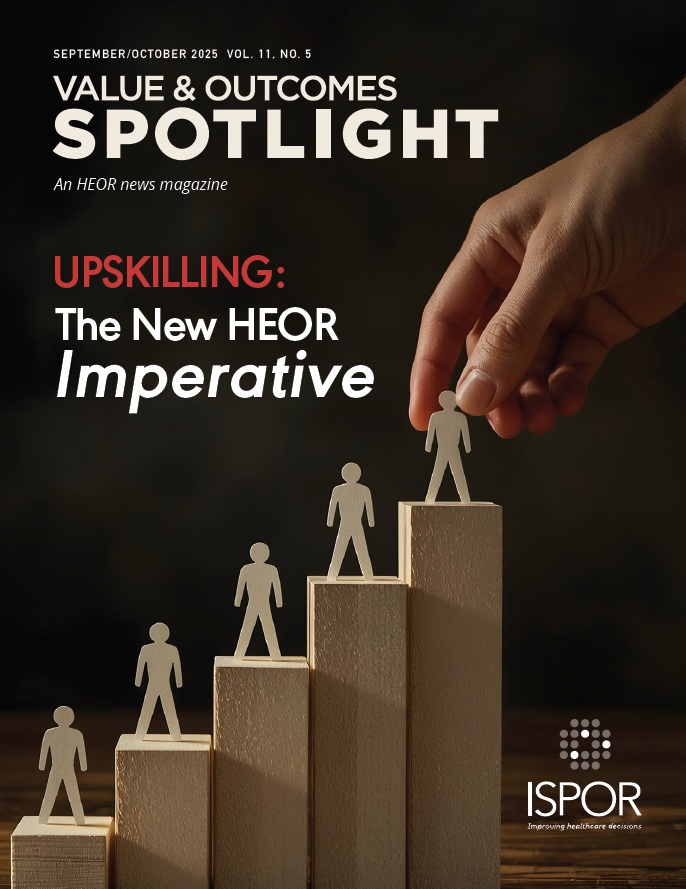HEOR Across the Globe
 Editor’s Note: Value & Outcomes Spotlight
is pleased to introduce “HEOR Across the Globe” as a recurring section
in the magazine. The Section Editors work with a small team of Regional
Reporters from Asia Pacific, Latin America, and Eastern Europe, Middle
East, and Africa to cover developments in health policies, news, and
events from these regions. If you have ideas for a story or want to
contribute an update, please email voseditor@ispor.org.
Editor’s Note: Value & Outcomes Spotlight
is pleased to introduce “HEOR Across the Globe” as a recurring section
in the magazine. The Section Editors work with a small team of Regional
Reporters from Asia Pacific, Latin America, and Eastern Europe, Middle
East, and Africa to cover developments in health policies, news, and
events from these regions. If you have ideas for a story or want to
contribute an update, please email voseditor@ispor.org.
ASIA PACIFIC
Section Editor: Paula Lorgelly, PhD, Auckland, New Zealand
Ripples That Reached Far Shores: HEOR Conferences in the Asia-Pacific Region
Unuhia te rito o te harakeke, kei hea te kōmako e kō?
Ui mai ki ahau, “He aha te mea nui o te Ao?”
Māku e kī atu,
“He tangata, he tangata, he tangata.”
If you remove the central shoot of the flaxbush, where will the bellbird find rest?
If you were to ask me, “What is the most important thing in the world?”
I would reply,
“It is people, it is people, it is people.”
This is a Māori proverb (a whakataukī) from the indigenous people of Aotearoa New Zealand. It uses a flax bush (a common New Zealand plant) as a metaphor for a large family unit, a whānau. Flax is used by weavers, but they only take the outer leaves; removing the middle stops growth and flowers, and without flowers there isn’t nectar for the bellbird. The bellbird would fly between land and sea, searching for a perch and food. Similarly, if the whānau (flax) ceases to produce and nurture children (new leaves) it will die. The proverb shows the importance of the whānau unit for nurturing people.
As this issue of Value & Outcomes Spotlight highlights the HEOR Workforce, I thought I’d adapt the metaphor, such that the flax bush syllabizes the recent conferences in the Asia Pacific region. Our outer leaves might have been cut by COVID, but we are back thriving in the global community and showing the world our flowers and they have come to drink our nectar.
The first event that kicked off the conference season in the region was the 16th International Health Economics Association (IHEA) Congress in Bali, Indonesia in July. I was honored to be the scientific program chair of this meeting; although it was a demanding role as we broke records with the number of abstracts submitted, and we unfortunately couldn’t accept them all. We had more than 1500 delegates—the second largest IHEA congress ever, and notably 38% of attendees were from the Asia region. It was intellectually rich, stimulating, and inspiring, and importantly showcased health economics in the region.
In August, Singapore hosted the 12th HTAsiaLink Conference. HTAsiaLink supports knowledge transfer and exchange across the Asia Pacific region, building the capacity for health technology assessment (HTA) and promoting the integration of HTA into decision making. There was a full program of science and debate that looked at diversity and equity, new developments in artificial intelligence and innovative technologies, and the role of HTA in achieving value-based healthcare. It was a close-knit, members-only event, which saw the launch of the HTAsiaLink Strategic Plan and the celebration of the 10th anniversary of Singapore’s Agency for Care Effectiveness.
We closed off the season with the ISPOR Real-World Evidence Summit in Tokyo in late September. I was a member of the program committee and again the quality of the abstracts submitted was excellent. Testament to the growth in scientific rigor in the region. Over 2 days, nearly 700 attendees discussed a range of issues with respect to harnessing and improving real-world evidence in the region to support the achievement of healthcare goals and growth strategies. Global experts, regional decision makers, and industry leaders discussed research and trends with respect to our regional landscape. Networking opportunities were aplenty, particularly among the different ISPOR Asia Pacific Chapters.
In 2025, the Asia Pacific region has showcased our beautiful cultures, stunning scenery, and culinary delights, while the HEOR workforce has networked, engaged, and established new collaborations across our scientific communities.
It is the people, it is the people, it is the people that make HEOR amazing.
Acknowledgment
I wish to acknowledge Metge and Jones He Taonga Tuku Iho no Ngā Tupuna. Maori proverbial sayings—a literary treasure, New Zealand Studies, July 1995 for providing an explanation of the whakataukī.
Eastern Europe, Middle East, and Africa
Section Editor: Bertalan Németh, PhD, Budapest, Hungary
New Developments and Regulations in Poland
Maciej Niewada, MD, PhD, Warsaw University of Technology, Poland
The current situation in Poland, which is indeed quite interesting, includes many new regulatory changes in the field of pricing and reimbursement of medicines, as well as HTA. Polish society is expecting a new amendment to the Reimbursement Regulation. However, the changes involve local, country-specific arrangements and may not be particularly relevant to share more broadly.
On the other hand, Poland does have some developments of greater scientific interest. The Polish HTA Agency has begun work on multiple criteria decision analysis for rare diseases. The process is still in its early stages, but we hope to have a more fully developed framework early next year.
In addition, the Polish HTA Agency is involved in one of the first Joint Clinical Assessment processes. While this is not yet mature enough to provide substantial insights, we expect that by the end of Q4 some initial experiences will be communicated.
ISPOR’s Bulgaria Chapter in Action
Guenka Petrova, DSc, PhD, Medical University of Sofia, Bulgaria
The Bulgarian ISPOR Chapter will participate at the 9th pharmaceutical congress of the Bulgarian Scientific Pharmaceutical Association. The congress motto is PharmaceuticAI Science Revolution. There will be a special session devoted to artificial intelligence (AI) application in pharmacology. Members of the Bulgarian ISPOR Chapter will present their work in the field of use of AI for evidence synthesis, real-world data collection and analysis, and practical application in the field of pharmacology.
The congress will also touch the global problems related to rational drug design, chemotherapy, targeted antineoplastic therapy and drug resistance, clinical pharmacology, hospital pharmacology, pharmacokinetics and biopharmaceutics, and others.


